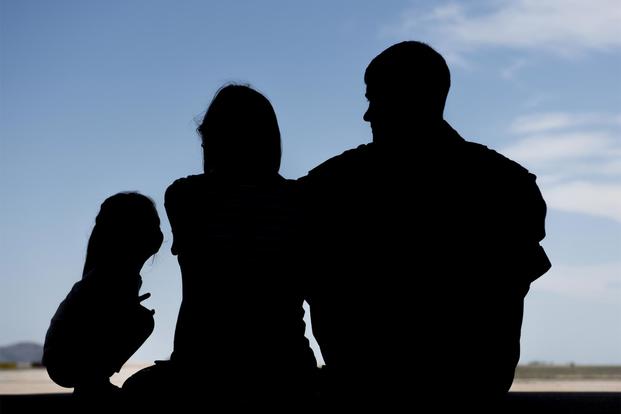Retired Master Chief Petty Officer Ken Falke, a 21-year combat veteran of the U.S. Navy Explosive Ordnance Disposal community, is the chairman and founder of Boulder Crest, a 501(c)(3) nonprofit organization that provides PTSD treatment to veterans, first responders and their families. Josh Goldberg is the executive director of the Boulder Crest Institute for Posttraumatic Growth.
May is Mental Health Awareness month and provides us with an excellent opportunity to talk about a much-discussed, but often misunderstood subject that affects every human on the planet.
We hate to be the bearer of bad news, but let us speak a hard truth: All of us will experience many ups and downs in our life. We will come to know trauma and triumph, success and struggle, pain and purpose. The question isn't whether we will be visited by struggle in our lives -- the question is whether we can learn to struggle well, in the face of these inevitable ups and downs.
As a society, we think about mental health in binary terms. Either someone is OK or they are not. If they aren't OK, and they seek help, they are normally diagnosed, and their symptoms of distress are treated with a combination of talk therapy and medication, with the goal to make them feel less uncomfortable. Success is regarded as a meaningful, albeit often short-lived, reduction in their symptoms.
Unfortunately, this approach is proving ineffective or inaccessible for far too many people -- particularly those within the military and veteran community. In part, it is because this approach is based on a false notion that traumatic experiences and times of struggle diminish us and our future, and that the best option is to accept that the remainder of our lives are destined to be filled with less joy, connection, growth and fulfillment.
Boulder Crest's breakthrough Warrior PATHH program is the first-ever initiative designed to cultivate and facilitate Posttraumatic Growth (PTG). PTG is most simply explained in the words of German philosopher Friedrich Nietzsche: "That which does not kill us makes us stronger."
Other veterans service organizations (VSOs) are leaning into this area of growing importance for veterans' mental health. Wounded Warrior Project, another VSO that provides direct programs and services for wounded post-9/11 veterans and their families, recognizes the importance of Warrior PATHH and the value of an approach based on PTG. Since late 2018, it has provided valuable support for Boulder Crest's breakthrough program.
For most people, the idea that the term "posttraumatic" can be followed by anything positive, much less anything other than Stress Disorder, is stunning. However, Posttraumatic Growth is a decades-old science and reflects the trajectory of human history dating back to as long as humans have been on the planet (otherwise, we would be extinct). We experience trauma, work to make sense of our experiences, and transform loss into gain, pain into purpose, and struggle into strength.
No one knows this better than combat veterans. In the 2,500-year-old words of the Athenian general and philosopher Thucydides, "We must remember that one [man/woman] is much the same as another and that [he/she] is best that is trained in the severest school."
In more recent years, retired Gen. Jim Mattis weighed in with a similar perspective: "If you assume that there is something wrong with people -- if you do it long enough -- expectations are very strong. There's also something called Posttraumatic Growth, where you come out of a situation like that and you actually feel kinder toward your fellow man and fellow woman. You're actually a better husband, father -- you actually have a closer relationship with your God. … Although if we tell our veterans enough that this is what is wrong with them, they may actually start believing it. I would say that there is one misperception of our veterans, and that is that they are somehow damaged goods. I don't buy it. And while victimhood in America is exalted today, I don't think our veterans should join those ranks."
For far too long, civilians have regarded combat veterans as a protected class, a group to be pitied for what they had to see and do, and who will inevitably struggle -- never fully able to make the journey all the way home from the battlefield.
As an organization dedicated to supporting and training combat veterans and their families, we know that this story is false. In truth, no one is stronger or more capable than combat veterans -- not despite their experiences, but because of them.
Combat veterans -- and those who support, guide and assist them -- have a tremendous opportunity. They can change this narrative and become the leaders for a different way of addressing mental health. A narrative that says that trauma will impact all of us at some point in time and that we all have the capacity to learn how to transform that struggle and challenge into strength and growth.
The idea that struggle is inevitable and valuable is baked into the life of any warrior. Thucydides said so 2,500 years ago, and Gen. Mattis three years ago. Warriors represent the strongest and best among us. When we forget that, so do they.
-- The opinions expressed in this op-ed are those of the author and do not necessarily reflect the views of Military.com. If you would like to submit your own commentary, please send your article to opinions@military.com for consideration.













